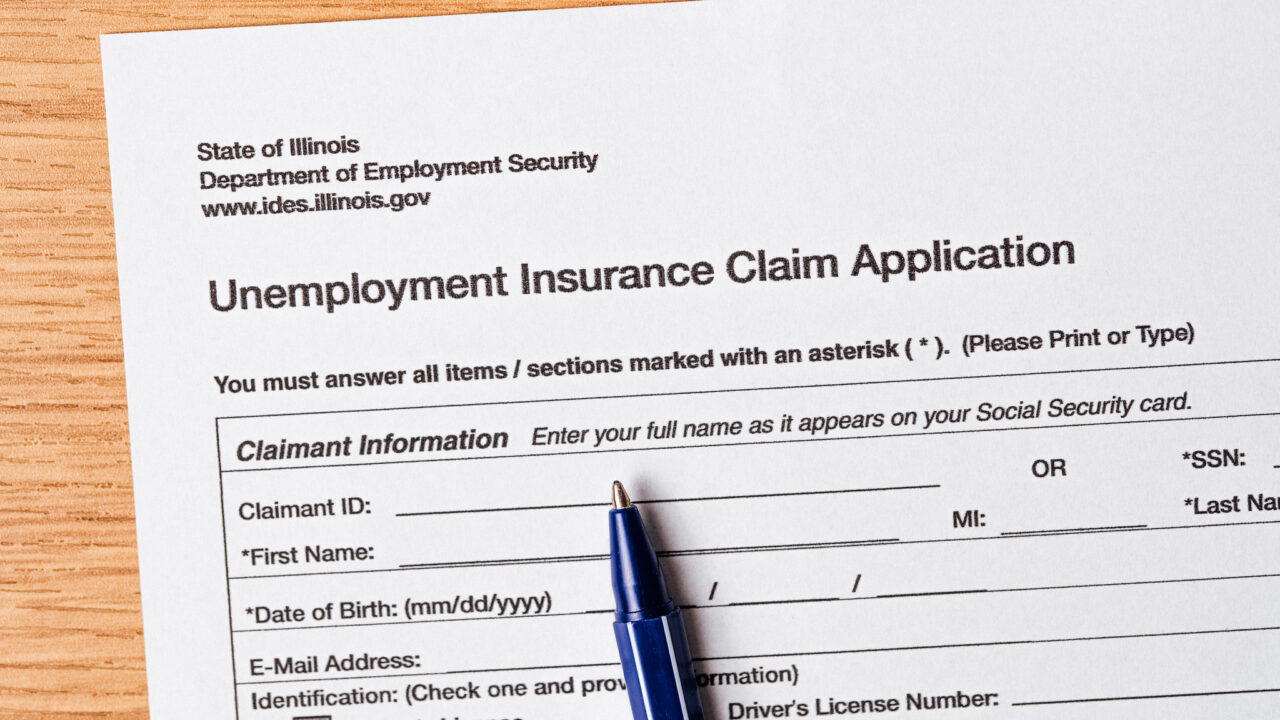 Ballpoint pen on an unemployment insurance claim application form by Ivan Radic is licensed under CC BY 2.0
Ballpoint pen on an unemployment insurance claim application form by Ivan Radic is licensed under CC BY 2.0
On September 12th, the U.S. Government Accountability Office (GAO) released a comprehensive report on unemployment insurance fraud during the pandemic. The GAO estimates that between $100 billion and $135 billion was defrauded from unemployment insurance. This figure accounted for 11 to 15 percent of the total amount of unemployment insurance benefits paid during the pandemic. Considering this massive fraud, lawmakers should further investigate this matter and attempt to claw back any unspent COVID funds.
The GAO’s estimate is for the pandemic period from April 2020 – the first full month of payments from all unemployment insurance programs – to May 2023, when the public health emergency for COVID-19 ended. This estimate covered all states that participated in the regular and temporary unemployment insurance programs. However, the full extent of unemployment insurance fraud during the pandemic will never be known.
In that time frame, the Department of Labor provided funding to states to help prevent, detect, and investigate fraud and recover fraudulent payments. During the pandemic, the Department of Labor dedicated 1.4 billion dollars in total funding to states towards stopping UI fraud. The Coronavirus Aid, Relief, and Economic Security (CARES) Act made up $525 million towards preventing and detecting fraud and identity theft, recovering fraudulent overpayments, and investigating fraud. The other $789 million came from the American Rescue Plan Act (ARPA) which prevented and detected fraud, reduced backlogs, and improved timeliness.
States reported finding about $55.8 billion in total overpayments—$5.3 billion of which were fraudulent. States reported recovering about $6.8 billion total, including $1.2 billion in fraudulent payments. The GAO considers the unemployment insurance system a “high risk” program for abuse and fraud.
Taxpayers are on the hook for the fraudulent unemployment insurance (UI) payments that should have gone to those who needed them. Thankfully, legislation from House Ways and Means Committee Chairman Jason Smith (R-Mo.), House Committee on Oversight and Accountability Chairman James Comer (R-Ky.), and other Ways and Means Committee Republicans would help recover hundreds of billions of dollars in stolen unemployment benefits.
This bill, H.R. 1163, the Protecting Taxpayers and Victims of Unemployment Fraud Act, provides states with incentives to investigate and recover lost funds, fight, and prevent future fraud, and extends the statute of limitations for prosecuting fraud. This bill incentivizes states to recover fraudulent unemployment payments by allowing states to retain 25 percent of fraudulent federal funds recovered and to use the recovery reward to improve UI program integrity and fraud prevention. This bill aims to improve program integrity and prevent future fraud by allowing states to retain 5 percent of state UI overpayments recovered, upon meeting data matching integrity conditions, and dedicating such funds to preventing future fraud – reforms supported by DOL-IG, and in past budget requests by President Trump and President Obama. Finally, this bill seeks to extend the statute of limitations for prosecuting fraud from 5 to 10 years.
Americans for Tax Reform has long opposed pandemic driven unemployment benefits, noting that it had a depressing effect on job creation and growth.
A study done by the Federal Reserve of St. Louis found that expanded unemployment benefits prolonged the struggling job market and reduced employment. As Democrats expanded and prolonged federal pandemic unemployment insurance benefits throughout most of 2021, the sluggish recovery of the post-Covid economy was further exacerbated by government assistance encouraging people not to seek and maintain employment. With the lack of people that filled vital roles in the US economy came further strain of the US supply chain and further economic instability.
With the worst of the pandemic firmly behind us and unemployment back to pre-pandemic rates, we can see that the unemployment insurance benefits distributed during the pandemic were ultimately a failure of government resources. The handouts encouraged mass amounts of fraud, slowed job creation and growth, and slowed overall economic recovery from the pandemic.
The GAO report provides a better picture of how much unemployment insurance was defrauded from the government. It should be paramount that Congress passes H.R. 1163 to recover the hundreds of billions of taxpayer dollars that were stolen from the high-risk unemployment insurance programs.

